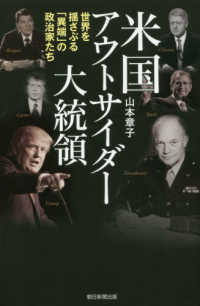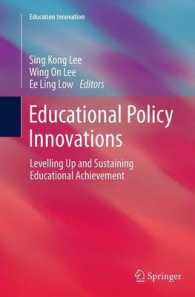Full Description
Despite the extensive research on trafficking from Nigeria to Europe, much of the existing knowledge remains victim-centred and rooted in the field of social assistance. This focus has been crucial in shaping our understanding of the anti-trafficking landscape—particularly in highlighting which aspects of victims' experiences are prioritised by institutions when assessing claims for humanitarian protection. However, it has also resulted in a narrow perspective, largely limited to the narratives of individuals who have been officially recognised as victims.
Rizzotti's book reconfigures established understandings of trafficking by incorporating the voices of convicted women, alongside those of identified victims and key stakeholders. Her fieldwork illuminates the ways in which Nigerian women resist and navigate the constraints placed on their social and geographical mobility—constraints often reinforced by institutional labels such as "trafficker" and "victim"—in order to pursue individual and collective migration goals. Rizzotti demonstrates that both convicted women and identified victims frequently share similar experiences and aspirations, particularly in their efforts to overcome restrictive migration regimes and gendered expectations imposed on them as racialised migrants from the Global South.
Contents
.- 1.Introduction: Ask them all- Victims and Traffickers in the trafficking debate.
.- 2. The case of trafficking from Nigeria to Italy: good women, good daughters, and good nieces.
.- Gender and trafficking.
.- 4. Race and trafficking.
.- 5. Nigerian women's perceptions of trafficking.
.- 6. Madams' motivations and indentured relationships.
.- 7. Conclusions.








